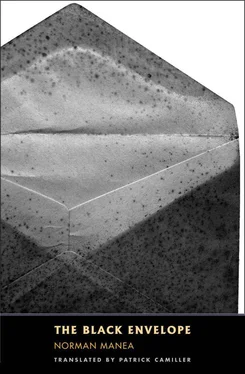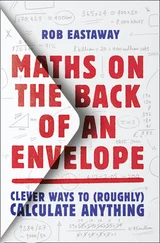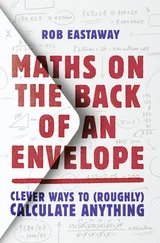“Do you want to be admitted, perhaps? A certificate, a prescription …”
“Cut the certificate crap! What are you talking about? I’ve come just like that. To greet spring in its magnificent headquarters at Bedlam.”
Dominic would put his fine hands on the table, near Dr. Marga’s plump hands with nails trimmed at a manicurist’s salon. Preparations … pah! You come here thinking of confessing! And you lose all interest, if you ever had any, as soon as you cross the threshold. And with what determination he had come! That’s it, all you can do is turn your hands palm up and think long and hard about the intricate lines of fate.
“I’ve come just like that, to look at your eyebrows. To find out the hidden sign, the code. That invisible scar at the end of your eyebrow.”
The doctor would not respond to the provocation; he still would not understand what it was about. A joke, an idiotic joke, some other mad stunt of the madman. But he would be sufficiently nervous to move his plump hands under the table, onto the lap of his smock coat.
“I dreamed of a letter.”
“What letter?”
“The bachelor’s letter. The dear boy’s. The blockhead, you know. Because he must have written it, m’sieur, it must have been him, whatever his name is. Octavian, phantom Octavian. I opened it out of curiosity, under a streetlamp. Sender unknown. But it was the bachelor’s letter, I swear. Addressee: Father. Who afterward — you know.”
The doctor smiling, tired out. He would take a handkerchief from his pocket, forget about the handkerchief, say that he’s exhausted. But he would not want to say any more, he had no way of avoiding the subject, he knew how persistent a madman can be. They would look for a long time into each other’s eyes, searching for a solution. The solution: to accept the chattering, to see the mad prank through to the end.
“Dead or alive, let’s bring the bachelor in. That’s what the gentleman in Buenos Aires wants. That is his wish. Crime, culprits, revenge! That’s the play in full, the whole of it. But I’d go even further and say: I’m afraid. I’m afraid of the truth: I’m as scared of betrayal as of the truth, and vice versa.”
“What truth?”
“The one I smelled long ago and all the time …”
“I don’t understand.”
“Well, my dear sir, let’s put our cards on the table.”
“Go to it, my boy. Well?”
“Well?”
“What letter? What bachelor?”
“The chatterlogue. The nihilist. The bachelor. The dear boy. The stutterer, ’Coz he was head over heels in love. And he felt he was losing her. ’Coz that missionary had come and taken her away. And then bang! — the last attempt. A forgery. A mere forger. He copied not only those slogans but their writing as well, their illiterate writing. All those green, worm-eaten slogans around the hooked cross. So courage, yes. An anonymous letter, but we all sign. He had signed, illegibly, and put that head in three parts above it.”
“What head? What three parts?”
“The three-headed emblem. The cross wasn’t enough, so there also had to be the three-headed emblem. That’s what gave him away. But Father didn’t tell anyone. He was afraid: everything had started to get too dark all around him. Beneath an appearance of calm, yes. There seemed to be a lull, a glimmer of hope — and that’s just when you forget to defend yourself. And that’s what Father was scared of — the apparent calm. Under which the old old danger was bubbling up: you know what I mean. Where there’s no morality, not even corruption can succeed in solving problems. A society without principles: it just shouts that it has some while it is chopping off your rocker. The danger could come from anywhere. In madness not even corruption helps any longer. In vain did Father become a wine dealer. That’s what he was counting on, as a philosopher. On weakness and vice and corruption. The stuttering and vengeful man in love. Only he had heard Father talking about Macrobius, Giordano, the three-headed emblem. Because Father was a philosopher, mad about things like that — as you know.”
“Come on, you’re joking.”
“I’m sorry: this is called dreaming, not joking. What am I? A child?”
“Okay, okay! Do you want to say something to me? Go ahead. Do you want to tell me something, after all, Tolea? I get the feeling that— Otherwise we should go. It’s late.”
The doctor would adjust his clothes and glasses.
“I don’t know what you want, Tolea. I’m going home now. I’m off … You’re having a bad day, Tolea. That’s the problem with you: you’re always having bad days. Insistence, insistence, your bad days, your defect, believe me.”
“The dear boy’s capable of tackling any subject, eh? Listen, the dear boy is capable of tackling any subject, isn’t he? On the evening of the quarrel, Father had received the letter and understood the danger. You’ve met my people. But only I know about the threatening letter. Only I and Father, do you understand? Sounds plausible, no? Do you admit it sounds plausible, my dear sir? Come on, admit it. If you love me, if you really care about me, potbellied sir, then admit it. Let’s say there was an emblem above the text or above the signature. On the envelope, too.”
“And so what? What are you getting at? You’re making things up — and not even with any purpose.”
Too late. In vain would the doctor rue his words, or turn from the door to comfort the madman. Mr. Tolea would quite simply no longer feel like talking. And if he didn’t feel like it, that was all there was to it! He was dead beat.
So, failure — yet another one. Just when we were at last on the point of finding Comrade Octavian, the exemplary photographer of the Exemplary Association; when we were finally prepared to test the charity of the charitable doctor, tell him that it’s no good trying to slip life-giving Irina into our bed, to recondition us so that we, too, are in tune with the world. Just when we were able to offer an original hypothesis about the past that has not yet passed. Just then, the battery ran out. Look, the wish to astound the doctor has quite simply vanished! It’s vanished and there’s nothing to be done about it.
Vacant eyes, moist limbs — the battery is flat. That’s the problem with us, Anatol Dominic Vancea Voinov, also called Tolea: we have our bad days, that’s all.
Vacant eyes, flat battery: any desire for fun and games and entertaining diversions was swept away. The hour of the wolf had come, the gray hour when aggression is imminent. Night was already advancing on all sides, with its invisible army of lepers. Soon he would feel the epileptic shudder of an encirclement from which there was no escape. The walls would sigh again, demented, shaking under the bolts from a poisoned sky; the roof would dance again, vibrating under the nocturnal bombardment; the windows would clank with the intoxication of terror.
Trauma coming from the ground, an earthquake like the one three years before, on that clear spring night when the crust suddenly began to crack and to throw up the pestilential burden of the morass. Just yesterday — three years ago, like three hundred years ago or three nights ago or never, like now. A cool, cloudless evening— like now. Freshness and peace. Tolea went to the window and looked at the street. An empty, clean street on which a young man was slowly limping behind a long-haired Afghan hound. A solemn, aristocratic, golden dog. The silent street in perfect repose, the perfectly absent dog, the lame young man in a thick black wool cape hanging down almost to his shoes.
He turned back inside the room and looked again at the library. A high wall completely full of book-bearing shelves. The old lawyer, once a friend of philosopher — wine dealer Marcu Vancea, had asked him to pay a visit to inspect his library. Having recently been left a widower, the pensioner wanted to sell off his collection of books. He had thought of Tolea, whom he knew to have been an avid reader as a young man, at the time when he himself had been a lawyer in that wretched trial over the bicycle accident.
Читать дальше












